Top 10 Benefits of Acupuncture: How This Ancient Therapy Boosts Modern Health
26/03/2025
Are you struggling with chronic pain, stress, poor sleep or digestive issues? Acupuncture could be the natural solution you’re looking for!
This time-tested therapy, used in Traditional Chinese Medicine (TCM), involves the insertion of thin needles into specific points on your body to restore balance and promote healing.
But how does acupuncture work in today’s world? What benefits does it offer, and what should you know before booking a session? In this guide, we’ll walk you through everything you need to know about the top 10 acupuncture benefits of acupuncture, types of acupuncture, and what to expect during a typical session.
Key Takeaways
-
Acupuncture is a centuries-old therapy in Traditional Chinese Medicine (TCM) practice that uses fine needles to stimulate specific points on the body for healing.
-
It restores the flow of Qi (energy) through meridians, improves blood circulation, and activates the body's natural healing processes.
-
Different forms target specific conditions, including Traditional Chinese Acupuncture, Electroacupuncture, Scalp Acupuncture, and Auriculotherapy.
-
Benefits of acupuncture include pain relief, stress reduction, better digestion, improved sleep, fertility support, and a stronger immune system.
-
For optimal results, always consult a qualified practitioner and understand any potential side effects. Regular sessions are typically recommended.
-
Before your session, stay hydrated, eat a light meal, wear loose clothing, and avoid caffeine, alcohol, and strenuous exercise.
What is Acupuncture? A Natural Path to Healing and Well-Being
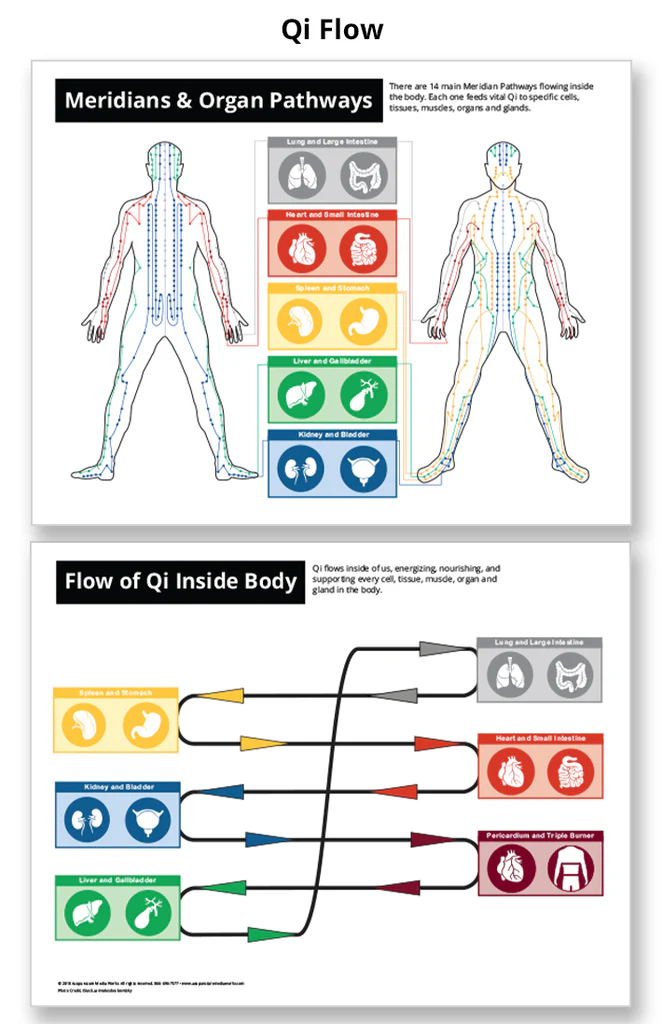
Acupuncture is a time-honored healing practice that has been used for over 2,500 years in Traditional Chinese Medicine (TCM). This natural therapy involves the insertion of thin, sterile needles into specific points on the body, known as acupoints, to restore balance and enhance overall health. Acupuncture has become widely recognized worldwide for its therapeutic benefits.
The Role of Qi in Acupuncture
In Traditional Chinese Medicine (TCM), it’s believed that our body contains an essential life force or energy called Qi (pronounced 'chee'). This energy flows through the body along pathways known as meridians. When Qi becomes blocked or unbalanced, it can lead to various health issues, including pain, stress, digestive problems, and more.
Acupuncture works by stimulating specific acupoints along these meridians, helping to clear blockages and restore the natural flow of Qi. This process enables the body to heal itself and promotes overall well-being.
Acupuncture in Modern Medicine: A Natural Path to Health
Today, acupuncture is widely recognized outside of Traditional Chinese Medicine (TCM) and has become an integral part of modern medical treatments. It is commonly used for pain management, stress relief, and improving overall well-being. Whether you're seeking a natural alternative to painkillers or looking to boost your body’s recovery, acupuncture provides a safe, effective, and non-invasive way to enhance your health and support natural healing processes.
How Acupuncture Works: Restoring Balance and Promoting Healing
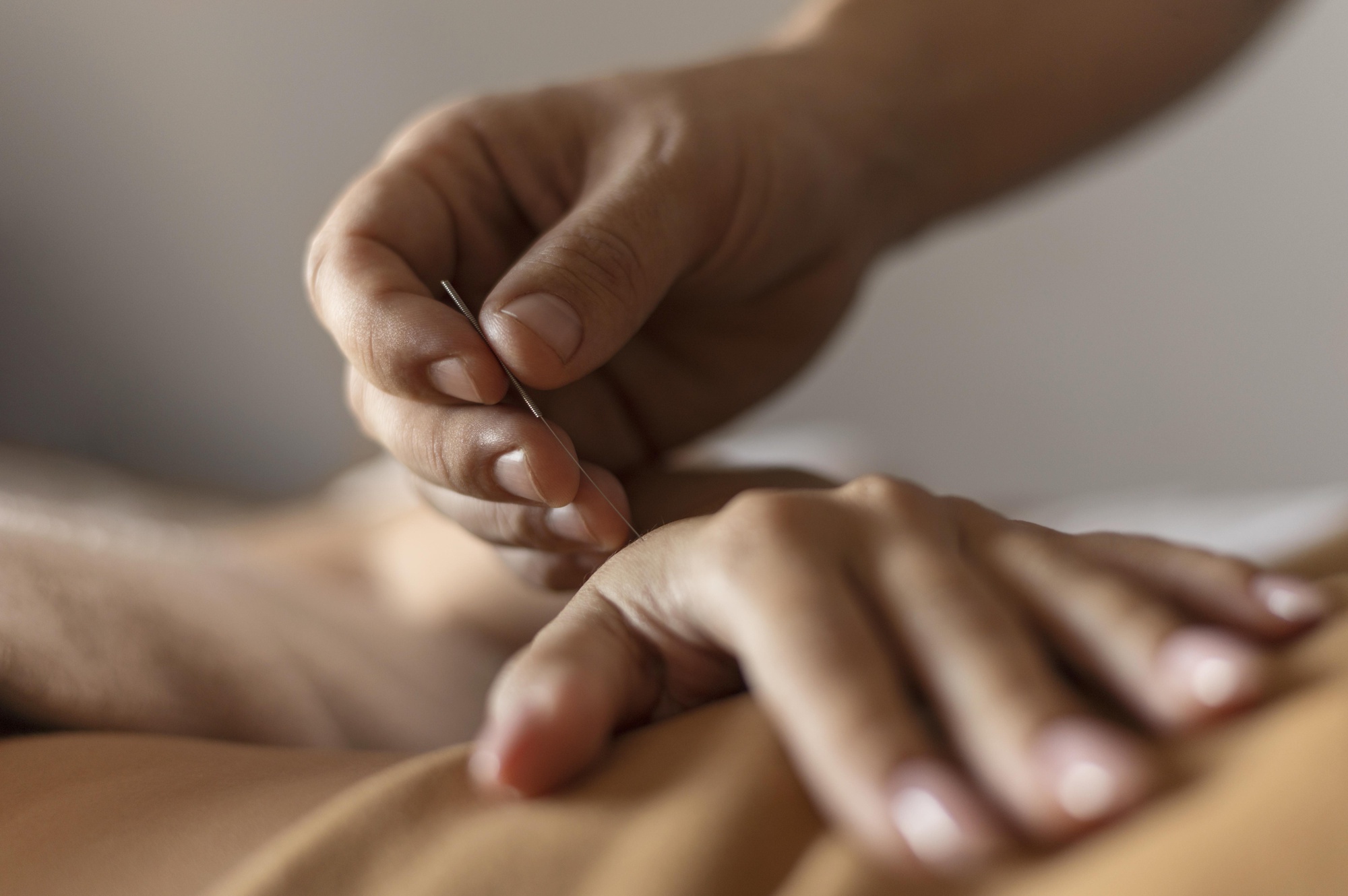
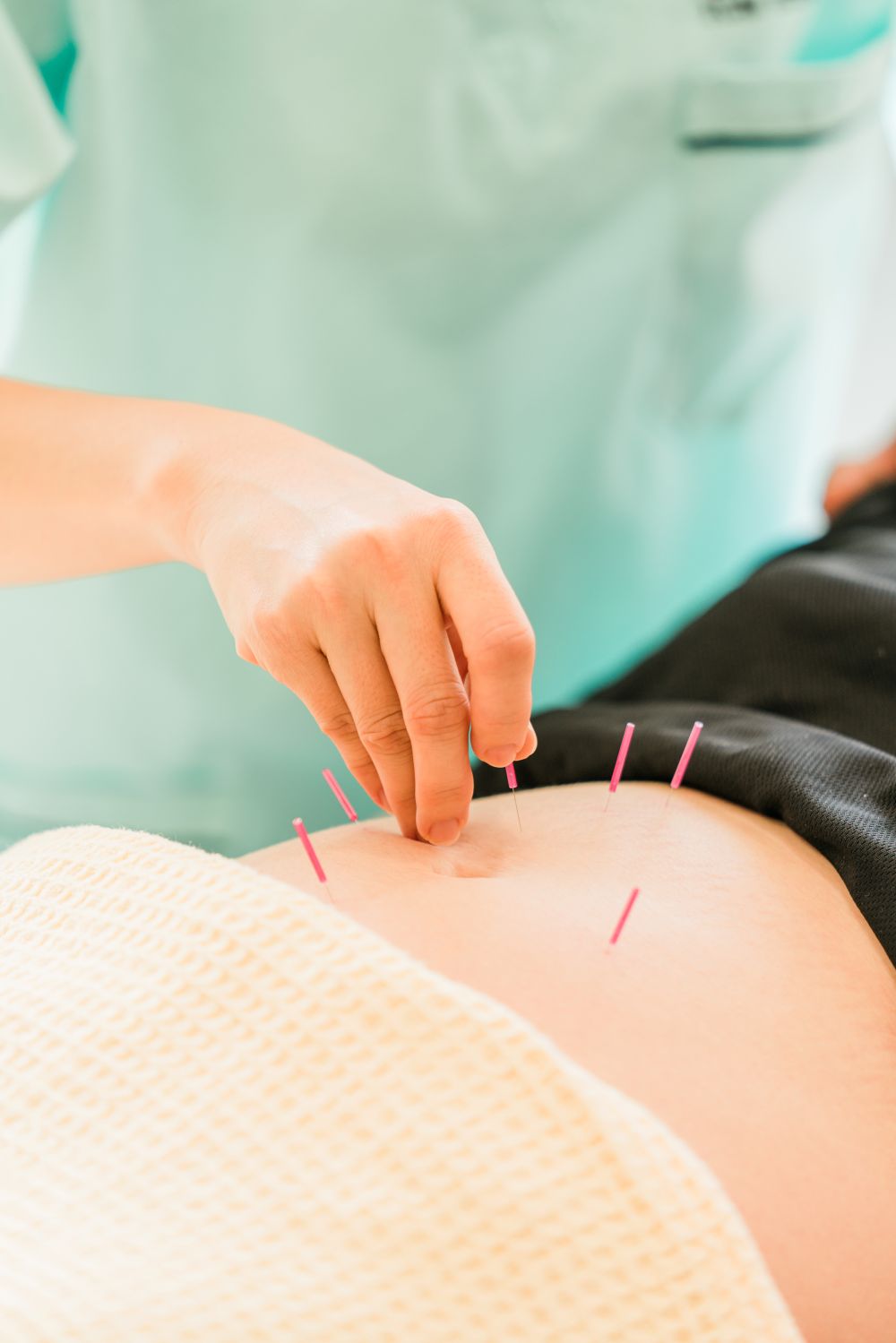
Acupuncture works by inserting thin, sterile needles into specific points on the body, known as acupoints. These acupoints are located along pathways called meridians, which, according to Traditional Chinese Medicine (TCM), carry Qi (pronounced “chee”), or vital energy, throughout the body. When Qi is blocked or unbalanced, it can lead to discomfort, illness, or chronic conditions.
By stimulating these acupoints, acupuncture helps restore Qi's natural flow, allowing the body to function more efficiently. From a modern medical perspective, acupuncture is believed to influence the nervous system, blood circulation, and immune response, promoting the body's natural healing processes.
Acupuncture Session: What to Expect
During a typical acupuncture session, a trained acupuncturist carefully inserts the needles at targeted points, often leaving them in place for 15 to 30 minutes. For enhanced therapeutic effects, some practitioners may also use electroacupuncture (gentle electrical stimulation), cupping therapy, or moxibustion (heat therapy) alongside traditional acupuncture techniques.
Acupuncture is widely used to manage pain, stress, and aid in recovery from injuries or surgeries. However, the full benefits of acupuncture depend on consistent treatments and how your body responds to the therapy. Many individuals find long-term relief and improvements in overall health with regular sessions.
Enhance Your Acupuncture Experience
Want to enhance your acupuncture experience? Discover how cupping therapy points and moxibustion treatment in Malaysia at Sunway TCM, where complementary therapies can further support your healing and wellness journey.
5 Types of Acupuncture and How They Work to Improve Your Health
Studies from the World Health Organisation and clinical research indicate that acupuncture treatments, including sports acupuncture and traditional practices, effectively support pain relief, muscle recovery, neurological rehabilitation, and overall well-being through precise needling techniques and meridian-based healing.
Acupuncture is a time-tested healing technique with several methods designed to target specific health issues. Whether you're seeking pain relief, stress management, or improved circulation, acupuncture offers tailored approaches for various needs.
Here are the five common types of acupuncture and how they work to support your overall well-being. From traditional techniques to modern adaptations, acupuncture can be customised to meet your unique health goals.
| Type of Acupuncture | How It Works | Benefits | Best For |
| Traditional Chinese Acupuncture | The most well-known and widely practiced form of acupuncture, based on Traditional Chinese Medicine (TCM) principles, which view the body as a network of meridians through which Qi (energy) flows. |
|
|
| Electroacupuncture | This method takes traditional acupuncture to the next level by adding gentle electrical pulses to the needles. It enhances nerve stimulation, making it effective for chronic conditions. |
|
|
| Scalp Acupuncture |
Specialises in treating neurological and brain-related conditions. It targets specific areas on the scalp, known as the somatotopic zones, to influence brain function and the central nervous system. It is believed to stimulate the brain's healing capacity and improve the body's response to nervous system imbalances. |
|
|
| Auricular (Ear) Acupuncture | Based on the idea that the ear functions as a microsystem reflecting the entire body. Stimulating these points can treat overall health and various conditions. Non-invasive and natural way to support your mental well-being and promotion emotional balance. |
|
|
Each type of acupuncture offers unique benefits, and the best choice for you depends on your specific health concerns and treatment goals. Whether you're seeking pain relief, stress reduction, or improved circulation, there’s an acupuncture method tailored to your needs.
Enhance Your Acupuncture Results with Cupping Therapy
Want to enhance your acupuncture results? Discover how cupping therapy works alongside acupuncture to improve circulation, relieve muscle tension, and boost healing. Learn how combining these therapies can accelerate your recovery and improve your overall well-being.
What is Acupuncture Good For?
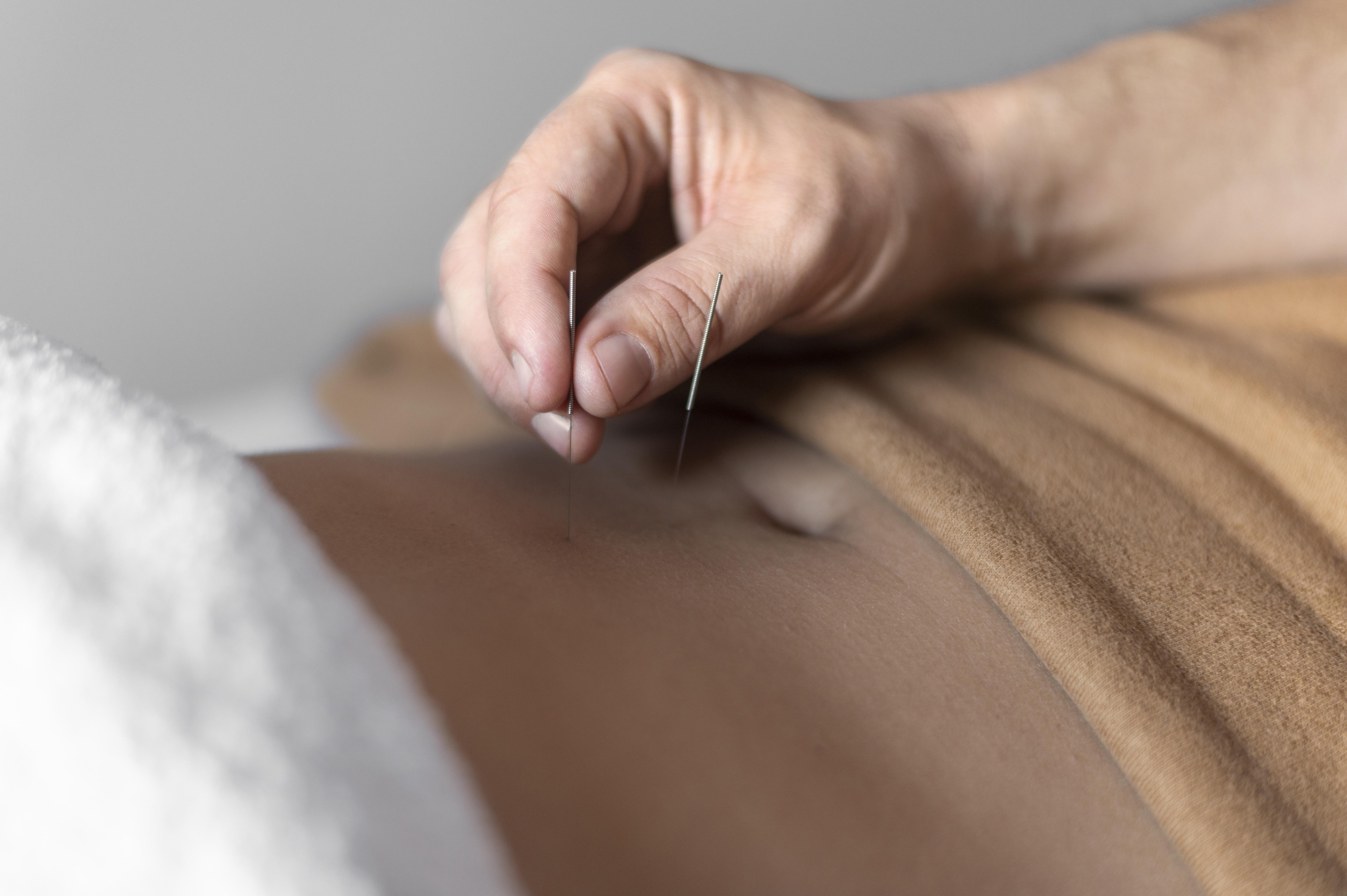
Acupuncture is a proven method for improving various health conditions.
One study in the Medical Journal Malaysia by Sim et al. (2025) reported that 33.2% of medical practitioners referred Chronic Non-Specific Low Back Pain (cnLBP) patients for acupuncture treatment, recognising its potential benefits.
Many Malaysians turn to acupuncture for pain relief, stress reduction, and overall well-being without relying on medications.
If you’re looking for a natural way and a holistic approach to improve your health, acupuncture offers a range of benefits. Here are 10 key benefits of acupuncture and how it can help you live a healthier, pain-free life.
-
Relieves Chronic Pain Naturally
Acupuncture is widely recognised for its ability to alleviate pain, especially for chronic conditions like arthritis, lower back pain, and migraines.
How Acupuncture Works
-
Stimulates the release of endorphins, the body’s natural painkillers.
-
Improves blood flow to affected areas, reducing inflammation and stiffness.
-
Relaxes muscles and relieves tension for long-term pain relief.
Best for: Joint pain, back pain, migraines, arthritis, and neck stiffness.
-
Reduces Stress and Anxiety
Modern life can be stressful, and acupuncture provides a natural way to calm the mind and body.By regulating cortisol levels (the stress hormone), it helps alleviate anxiety, tension, and emotional imbalances.
How Acupuncture Works
-
Stimulates the nervous system to activate relaxation responses to reduce stress.
-
Balances serotonin and dopamine levels, improving mood stability.
-
Reduces physical symptoms of stress, such as muscle tension and headaches.
Best for: Work-related stress, anxiety, mood swings, and tension headaches.
-
Improves Sleep Quality
Struggling with insomnia or restless nights? Acupuncture helps reset your body’s sleep cycle, leading to deeper, more restorative sleep.
How Acupuncture Works
-
Increases melatonin production, helping regulate sleep patterns.
-
Calms overactive brain activity that leads to difficulty falling asleep.
-
Relieves conditions that disrupt or cause poor sleep, such as stress, pain, and digestion issues.
Best for: Insomnia, restless sleep, fatigue, and sleep apnea.
-
Strengthens the Immune System
Acupuncture supports a strong immune system, helping fight colds, infections, and seasonal allergies.
How Acupuncture Works
-
Enhances the production of white blood cells,boosting immunity.
-
Reduces inflammation, which helps prevent infections.
-
Sppeds up recovery from illness.
Best for: Weak immunity, frequent colds, sinus infections, and flu prevention.
-
Supports Digestion and Gut Health
Acupuncture can help regulate digestive function, making it useful for conditions like irritable bowel syndrome (IBS), acid reflux, and bloating.
How Acupuncture Works:
-
Stimulates the digestive system, promoting better absorption of nutrients.
-
Reduces inflammation in the gut, helping with bloating and cramps.
-
Helps regulate appetite and metabolism.
Best for: Indigestion, bloating, acid reflux, constipation, and irritable bowel syndrome (IBS).
-
Balances Hormones and Supports Fertility
Hormonal imbalances can affect menstrual health, fertility, and menopause symptoms. Acupuncture naturally regulates hormone levels and enhances reproductive health.
How Acupuncture Works:
-
Helps regulate hormone levels, improving menstrual cycles.
-
Improves blood flow to the uterus and reproductive organs, enhancing fertility.
-
Reduces stress, which can impact hormone balance.
Best for: Irregular periods, PCOS, infertility, and menopause symptoms.
-
Enhances Blood Circulation
Good circulation is essential for energy, healing, and overall body function.
Acupuncture promotes healthy blood flow, ensuring oxygen and nutrients reach your organs and tissues.
How It Works
-
Expands blood vessels, allowing better circulation.
-
Reduces blood pressure and heart strain.
-
Helps in the healing of wounds and muscle recovery.
Best for: Poor circulation, cold hands and feet, high blood pressure, and muscle recovery.
-
Speeds Up Injury Recovery and Muscle Healing
Whether you're an athlete or dealing with an old injury, acupuncture accelerates muscle repair and reduces inflammation.
How Acupuncture Works:
-
Increases blood flow to injured areas, promoting faster healing.
-
Relieves muscle stiffness and pain, preventing further injury.
-
Reduces swelling and inflammation, improving mobility.
Best for: Sports injuries, muscle strains, and post-surgery recovery.
-
Reduces Inflammation and Swelling
Chronic inflammation may contribute to pain, stiffness, and long-term health problems. Acupuncture helps regulate inflammatory responses in the body.
How Acupuncture Works:
-
Stimulates anti-inflammatory pathways in the body.
-
Reduces swelling and joint pain.
-
Supports faster recovery from inflammation-related conditions.
Best for: Arthritis, joint pain, autoimmune disorders, and swelling.
-
Supports Mental Well-Being and Emotional Balance
Beyond stress relief, acupuncture helps balance emotions and improve mental clarity. making it a valuable complementary therapy for mental health conditions.
How Acupuncture Works:
-
Stimulates the brain’s dopamine and serotonin production for better mood regulation.
-
Reduces feelings of brain fog, fatigue, and mental burnout.
-
Helps manage symptoms of depression and anxiety.
Best for: Depression, mental fatigue, emotional stress, and burnout.
Boost your health naturally with acupuncture by experienced practitioners at Sunway TCM—safe, effective, and tailored for pain relief, stress reduction, and wellness.
Acupuncture vs. Dry Needling: What’s the Difference?
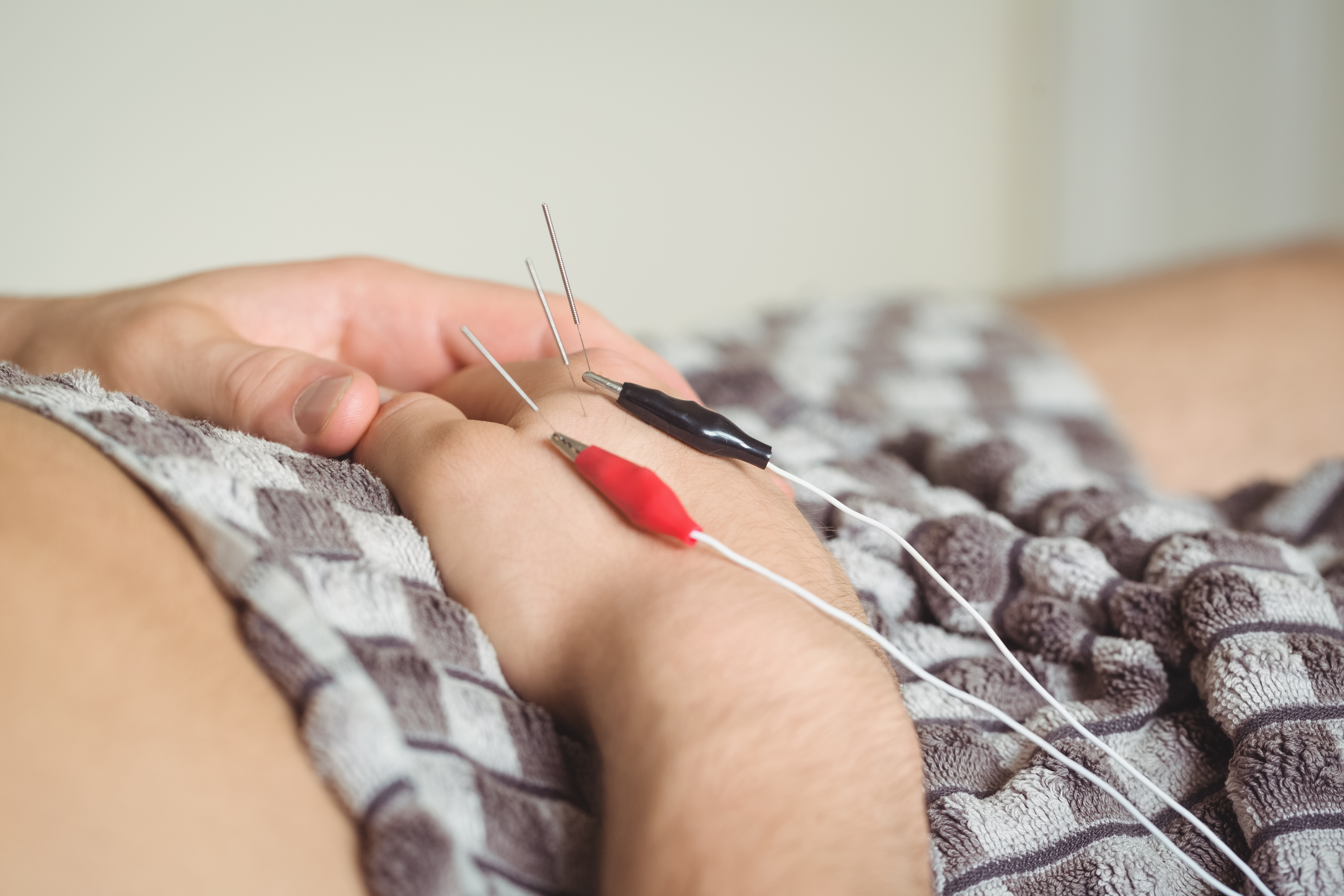
Both acupuncture and dry needling involve thin needles inserted into the body, but they serve different purposes and come from distinct medical traditions. Understanding the key differences can help you choose the right therapy for your needs.
| Acupuncture | Aspect | Dry Needling |
| Traditional Chinese Medicine (TCM), practised for over 2,500 years. | Origin | A modern Western medical technique typically on musculoskeletal technique developed for muscle pain relief. |
| Focuses on restoring Qi (energy flow) along meridians to balance the body. | Concept | Targets trigger points (knots in muscles) to relieve pain and tension. |
| Needles are inserted at specific meridian points based on TCM principles. | Needle Insertion | Needles are placed directly into tight muscles or trigger points. |
| Treats various conditions, including pain, stress, digestion, and hormonal balance. | Primary Purpose | Focuses mainly on muscle-related pain and dysfunction. |
| Holistic approach—addresses the root cause of imbalances. | Treatment Focus | Localised approach—relieves tension in specific muscles. |
| Can include electroacupuncture, auriculotherapy, and cupping therapy. | Techniques Used | May involve electrical stimulation but no additional TCM methods. |
|
Best for |
|
Which One Is Right for You?
-
Choose acupuncture if you want a holistic approach to pain relief, stress reduction, and overall well-being.
-
Choose dry needling if you're dealing with localised muscle tightness, postural issues, or sports injuries.
Acupuncture vs. Auriculotherapy: What’s the Difference?
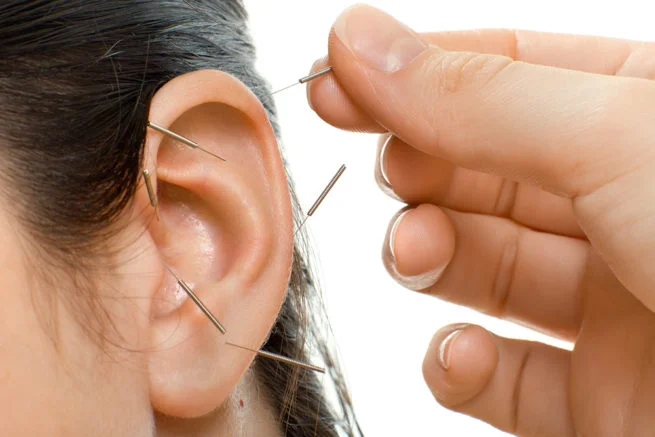
(Image Source: Centre of Health & Wellbeing)
Acupuncture and auriculotherapy (ear acupuncture) are based on the principles of Traditional Chinese Medicine (TCM), but they have different approaches, treatment areas, and how they work to improve health.
Below are their differences before you decide to take one of these sessions based on your preferences.
| Acupuncture | Aspect | Auriculotherapy (Ear Acupuncture) |
| Traditional Chinese Medicine (TCM), practised for over 2,500 years. | Origin | Developed from TCM but further refined in French auriculotherapy, linking ear points to the brain and nervous system. |
| Focuses on restoring Qi (energy flow) along meridians to balance the body. | Concept | The ear is viewed as a microsystem, where specific points correspond to different organs and body functions. |
| Needles are placed at various acupuncture points on the body based on meridian pathways. | Needle Insetion | Needles, ear seeds, or mild electrical stimulation are applied to specific points on the outer ear. |
| Treats various conditions, from pain relief to digestive issues and emotional balance. | Primary Purpose | Commonly used for addiction therapy, weight loss, stress relief, and mental well-being. |
| A holistic approach that targets internal and external imbalances. | Treatment Focus | Focuses mainly on neurological and reflexive healing through the ear's connection to the brain. |
| Can include electroacupuncture, auriculotherapy, and cupping therapy. | Techniques Used | Often involves ear seeds (non-invasive pressure therapy) or electrical stimulation instead of needles. |
|
Best For |
|
Looking for a natural way to support stress relief, addiction recovery, or weight management? Discover auricular ear acupuncture in Malaysia at Sunway TCM and experience its benefits.
4 Important Things to Consider Before Trying Acupuncture
Thinking about trying acupuncture? Before you book your first session, knowing what to expect is important.
While acupuncture is a safe and effective therapy, understanding the key considerations can help you get the best results.
Here are four essential things to consider before starting acupuncture.
-
Who Can and Cannot Take Acupuncture?
It is essential to know if it’s the right treatment for you. Although it is generally safe, certain individuals should take extra precautions.
Suitable for
-
Individuals suffering from chronic pain, stress, anxiety, migraines, and digestive issues.
-
People looking for natural healing alternatives without relying on medication.
-
Those undergoing post-injury rehabilitation or fertility treatments.
Not recommended for
-
Individuals with severe bleeding disorders or who are on blood thinners (as acupuncture may increase the risk of bleeding).
-
Pregnant women should consult a doctor first, as some acupoints may induce contractions.
-
People with severe infections or skin conditions at the needle insertion sites.
-
Possible Side Effects and Risks
Although acupuncture is a minimally invasive treatment, some people may experience mild side effects.
Common side effects
-
Slight bruising or redness at needle points.
-
Temporary dizziness or lightheadedness after a session.
-
Mild soreness in treated areas, which typically fades within a few hours.
When to seek medical advice
-
If you experience severe pain or prolonged discomfort after acupuncture.
-
Signs of infection, such as swelling or persistent redness at the needle sites.
-
Unusual reactions, such as excessive bleeding or allergic responses.
-
Choosing a Qualified Acupuncturist
To ensure a safe and effective acupuncture experience, always seek licensed and experienced practitioners.
-
Look for certified TCM practitioners at reputable healthcare and wellness programs like Sunway TCM.
-
Ensure strict hygiene standards—all needles should be sterile and single-use.
-
Choose a practitioner who takes the time to understand your medical history and health concerns before treatment.
-
Expected Outcomes and Treatment Duration
Acupuncture is not a one-time quick fix—results depend on your condition and treatment consistency.
How many sessions are needed?
-
Acute conditions (e.g., headaches, muscle tension): 1–3 sessions may provide relief.
-
Chronic conditions (e.g., arthritis, anxiety, migraines): May require 6–12 sessions for long-term benefits.
-
Preventive care and general wellness: Regular monthly sessions can help maintain balance.
Some people experience immediate relief, while others may need multiple sessions for noticeable improvement.
5 Steps To Take Before Taking an Acupuncture Session
Properly preparing for your acupuncture session can enhance its effectiveness and help you feel more comfortable during the treatment.
Here are five key steps to take before your appointment.
-
Stay Hydrated
Drinking plenty of water before your session helps your body respond better to acupuncture.
Proper hydration supports blood circulation and prevents dizziness during treatment.
-
Do: Drink water throughout the day.
-
Don’t: Excessive caffeine or alcohol before your session, as they can dehydrate you and affect energy flow.
-
Eat a Light Meal
A small meal or snack before acupuncture prevents lightheadedness and stabilises your energy levels.
However, avoid eating a heavy or greasy meal right before your appointment.
-
Do: Eat something light, like fruits, nuts, or a balanced meal.
-
Don’t: Fasting or arriving on an empty stomach, as this may lead to dizziness.
-
Wear Comfortable Clothing
Acupuncturists often need access to your arms, legs, and back, so wearing loose, comfortable clothing makes the process easier.
-
Do: Wear short sleeves, loose pants, or breathable fabrics.
-
Don’t: Tight clothing that may restrict movement or need to be removed for treatment.
-
Relax and Arrive Early
Acupuncture works best when your body is in a calm state.
Arriving 10-15 minutes early allows you to relax and prepare for the session without feeling rushed.
-
Do: Practice deep breathing or meditation if you're feeling nervous
-
Avoid: Rushing or stressing before your appointment can interfere with treatment effectiveness.
-
Avoid Intense Exercise Right Before the Session
While light movement is okay, strenuous exercise can overstimulate your muscles and leave you feeling too tired or tense for acupuncture.
-
Do: Engage in gentle stretching or light walking.
Avoid: Intense workouts, heavy lifting, or vigorous cardio before your session.
Best Practices in Acupuncture for Optimal Results
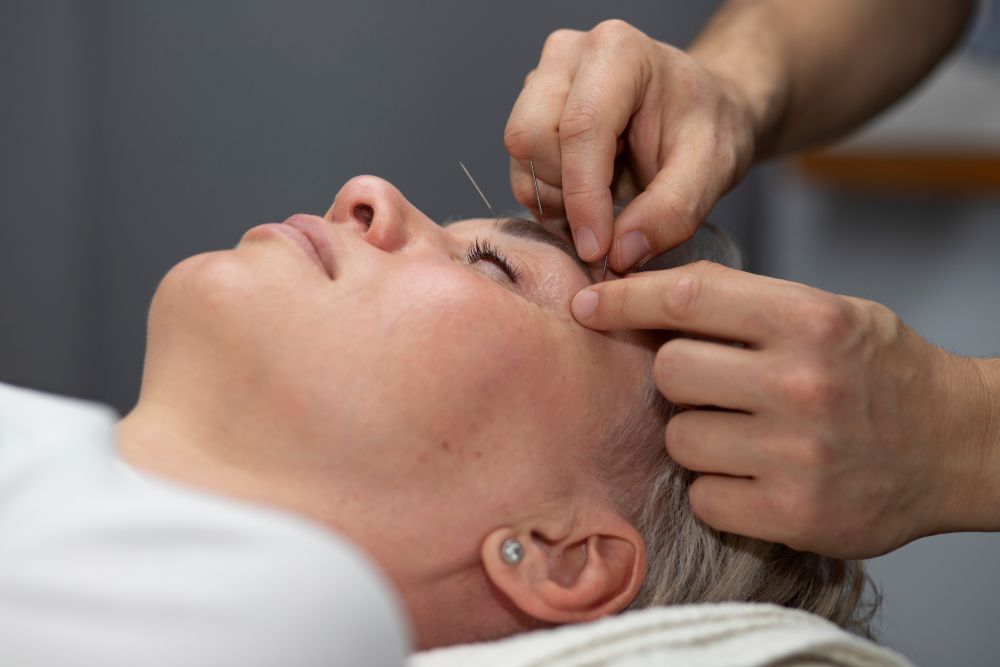
To get the most out of your acupuncture treatment, following best practices before, during, and after your session is essential.
These simple steps can help maximise the benefits and ensure a smoother healing process.
-
Stay Consistent with Treatment
Acupuncture stimulates your body's natural healing process, which means consistent sessions are key to seeing long-term results.
Some people experience immediate relief, while others may need multiple sessions to notice significant improvements.
-
Stick to your treatment plan as recommended by your acupuncturist.
-
Attend follow-up sessions even if symptoms improve to maintain progress.
-
Use acupuncture as part of an overall wellness routine rather than a one-time fix.
Don’t: Stopping treatment too soon if you don’t feel instant results—healing takes time.
-
Communicate with Your Acupuncturist
Your body responds differently to each session, so keeping open communication with your acupuncturist ensures that your treatment plan is adjusted accordingly.
-
Share any changes in symptoms or pain levels after each session.
-
Let your acupuncturist know if you experience any discomfort during treatment.
-
Ask for guidance on other lifestyle changes that can support your healing.
Don’t: Withholding important health details, as this may affect the effectiveness of the treatment.
-
Follow Proper Post-Session Care
What you do after an acupuncture session can significantly impact its effectiveness. Proper aftercare helps prolong the benefits of the treatment.
-
Stay hydrated to flush out toxins and support circulation.
-
Rest if needed – give your body time to adjust and recover.
-
Eat a healthy, balanced meal to replenish your energy.
-
Apply gentle heat (if recommended) to relax muscles.
Don’t:
-
Strenuous exercise or heavy lifting right after the session.
-
Caffeine or alcohol for at least a few hours after acupuncture.
-
Overloading your schedule—allows time to relax after treatment.
-
Be Patient with Results
Unlike painkillers, acupuncture doesn’t always provide instant relief. Instead, it works by stimulating your body’s natural healing process, which takes time.
-
Trust the process and attend follow-up sessions as recommended.
-
Track your progress and note any gradual improvements in pain levels, stress, or energy.
-
Combine acupuncture with a healthy diet, exercise, and stress management for better results.
Don’t: Expecting instant cures—while some people feel immediate relief, others may take a few sessions to notice significant changes.
-
Choose a Qualified and Experienced Acupuncturist
The quality of your treatment depends on the expertise of the practitioner. A well-trained acupuncturist ensures safe, effective, and customised care.
-
Choose a licensed and experienced TCM practitioner.
-
Ensure they follow proper hygiene standards (sterile, single-use needles).
-
Seek a clinic that offers personalised treatment plans based on your needs.
Don’t: Going to unverified practitioners without proper credentials or experience.
Experience the Healing Power of Acupuncture at Sunway TCM
Sunway TCM Centre offers comprehensive acupuncture in Petaling Jaya to promote health and well-being by stimulating specific points on the body to enhance the circulation of Qi and blood.
Our treatments aim to prevent diseases, manage pain, and improve overall life expectancy.
-
Certified and Experienced Practitioners
Our highly trained and certified TCM practitioners provide Sunway TCM’s acupuncture treatments with extensive experience in pain relief, rehabilitation, and overall wellness.
Practitioners are well-versed in traditional and modern acupuncture techniques, ensuring safe and effective treatments.
-
Personalised Treatment Plans
Each patient receives a customised acupuncture plan based on their specific health conditions and treatment goals.
Whether you need acupuncture for chronic pain, stress relief, hormonal balance, or recovery, Sunway TCM tailors the approach to suit your needs.
-
Comprehensive Acupuncture Techniques
Sunway TCM offers a range of acupuncture services, including:
-
Traditional Chinese Acupuncture – Balances Qi and restores overall well-being.
-
Electroacupuncture – Uses mild electrical stimulation for deeper muscle relief.
-
Scalp Acupuncture – Supports stroke recovery and neurological conditions.
-
Auricular (Ear) Acupuncture – Assists in addiction recovery, weight management, and mental health support.
-
Cupping Therapy (Complementary to Acupuncture) – Improves circulation and detoxification.
-
A Safe and Comfortable Healing Environment
Sunway TCM provides a clean, modern, and relaxing clinic setting for acupuncture treatments.
Our strict hygiene protocols ensure that all needles are sterile and single-use, prioritising patient safety.
-
Evidence-Based Approach to TCM
Sunway TCM integrates scientific research with traditional acupuncture techniques, ensuring medical studies and TCM principles back treatments.
Our certified practitioners take a holistic approach, considering lifestyle, diet, and overall health in treatment plans.
Conclusion
Acupuncture is a time-tested, natural therapy that can help with a wide range of health concerns, from chronic pain and stress relief to digestive health, fertility support, and post-recovery treatments.
Understanding its benefits, different types, and best practices lets you make an informed decision before starting your sessions.
If you’re considering acupuncture, it’s important to:
-
Understand the types of acupuncture and how they work.
-
To choose the right treatment for your needs, be aware of the differences between acupuncture, dry needling, and auriculotherapy.
-
Follow best practices before and after your session for optimal results.
-
Choose a qualified and experienced acupuncturist for safe and effective treatment.
At Sunway TCM, you’ll receive personalised acupuncture treatments tailored to your needs from certified practitioners in a safe and comfortable environment.
Ready to experience the benefits of acupuncture? Visit our Sunway TCM in KL to learn more and book your session today.
Back
